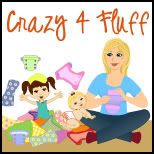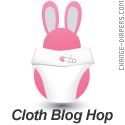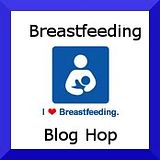Before I chose to switch to cloth diapers , I never knew the facts
I never once thought about where that diaper would go when I tossed it in the garbage.
It never crossed my mind that there were chemicals in my baby's diapers.
I was ignorant and naive, like so many other parents out there.
So when I learned the ugly truth about disposables.. I knew I had to make a change.
I take what the bible says seriously and
Rev 11:18 mentions that God will "bring to ruin those ruining the earth."
Here are some gruesome and thought provoking facts to consider
Even if you no longer have a child in diapers, You too can help spread the word!
HEALTH:
Disposable diapers contain the super absorbent chemical, sodium polyacrylate, which has been linked to toxic shock syndrome. That same chemical was removed from tampons in 1985.
Disposable diapers contain Dioxin, an extremely toxic by-product of the paper-bleaching process. It is a carcinogenic chemical, listed by the EPA as the most toxic of all cancer-linked chemicals.It has been banned in most countries, but not the U.S
Disposable diapers contain Tributyl-tin (TBT) - a toxic pollutant known to cause hormonal problems in humans and animals.2
Disposable diapers contain the super absorbent chemical, sodium polyacrylate, which has been linked to toxic shock syndrome. That same chemical was removed from tampons in 1985.
Disposable diapers contain Dioxin, an extremely toxic by-product of the paper-bleaching process. It is a carcinogenic chemical, listed by the EPA as the most toxic of all cancer-linked chemicals.It has been banned in most countries, but not the U.S
Disposable diapers contain Tributyl-tin (TBT) - a toxic pollutant known to cause hormonal problems in humans and animals.2
In May 2000, the Archives of Disease in Childhood published research showing that scrotal temperature is increased in boys wearing disposable diapers, and that prolonged use of disposable diapers will blunt or completely abolish the physiological testicular cooling mechanism important for normal spermatogenesis.
ENVIRONMENT:
The instructions on a disposable diaper package advice that all fecal matter should be deposited in the toilet before discarding, yet less than one half of one percent of all waste from single-use diapers goes into the sewage system.
Each SINGLE diaper can take approx. 500 years to decompose.
The instructions on a disposable diaper package advice that all fecal matter should be deposited in the toilet before discarding, yet less than one half of one percent of all waste from single-use diapers goes into the sewage system.
Each SINGLE diaper can take approx. 500 years to decompose.
Over 92% of all single-use diapers end up in a landfill.
27,400,000,000 disposable diapers are hauled off to landfills each year.
Each Child that is put in disposable diapers will use an average of 9000 diapers before potty learning.
Disposable diapers are the third largest single consumer item in landfills,
27,400,000,000 disposable diapers are hauled off to landfills each year.
Each Child that is put in disposable diapers will use an average of 9000 diapers before potty learning.
Disposable diapers are the third largest single consumer item in landfills,
and represent about 4% of solid waste.
In a house with a child in diapers, disposables make up 50% of household waste.
Disposable diapers generate sixty times more solid waste
and use twenty times more raw materials, like crude oil and wood pulp.
DRYNESS AND RASH:
The most common reason for diaper rash
is excessive moisture against the skin.
Disposable diapers can hold about 7 pounds of fluid. YUCK!
At least half of all babies will exhibit rash at least once during their diapering years.
Diaper rash was almost unheard of before the 1940s.
Diaper rash was almost unheard of before the 1940s.
The manufacture and use of disposable diapers amounts
to 2.3 times more water wasted than cloth.
Over 300 pounds of wood, 50 pounds of petroleum feedstocks
Over 300 pounds of wood, 50 pounds of petroleum feedstocks
and 20 pounds of chlorine are used to produce
disposable diapers for one baby EACH YEAR.
In 1991, an attempt towards recycling
disposable diapers was made in the city of Seattle,
involving 800 families, 30 day care centers, a hospital
and a Seattle-based recycler for a period of one year.
The conclusion made by Procter & Gamble was that
recycling disposable diapers was not
an economically feasible task on any scale.17
COST:
We estimate that each baby will need
about 6,000 diapers during the first two years of life.
A pack of a top brand disposable diapers (160 count)
Runs on average $43.
If a baby goes through an average of 10 diaper a day..
a huge box like that can last about 16 days!
So that's about $0.25 a diaper.
Might not seem like much but multiply that by 6,000!
$1,500 on ONE BABY!
A stash of Cloth diaper can range from 100-500
depending on the brand, style, etc.
See this great chart of costs: Disposables -vs- Cloth diapers
HERE
With all these FACTS!
Why would you NOT choose cloth?!?!
Would you knowing & willingly put harmful chemicals on your baby?
Would you flush money down the toilet, on purpose?
Any loving parent would say "NO".
Why not make the smart choice and choose cloth?
A pack of a top brand disposable diapers (160 count)
Runs on average $43.
If a baby goes through an average of 10 diaper a day..
a huge box like that can last about 16 days!
So that's about $0.25 a diaper.
Might not seem like much but multiply that by 6,000!
$1,500 on ONE BABY!
A stash of Cloth diaper can range from 100-500
depending on the brand, style, etc.
See this great chart of costs: Disposables -vs- Cloth diapers
HERE
With all these FACTS!
Why would you NOT choose cloth?!?!
Would you knowing & willingly put harmful chemicals on your baby?
Would you flush money down the toilet, on purpose?
Any loving parent would say "NO".
Why not make the smart choice and choose cloth?























1 comments:
Yikes about the chemicals! I am so glad I have made the switch!
Post a Comment